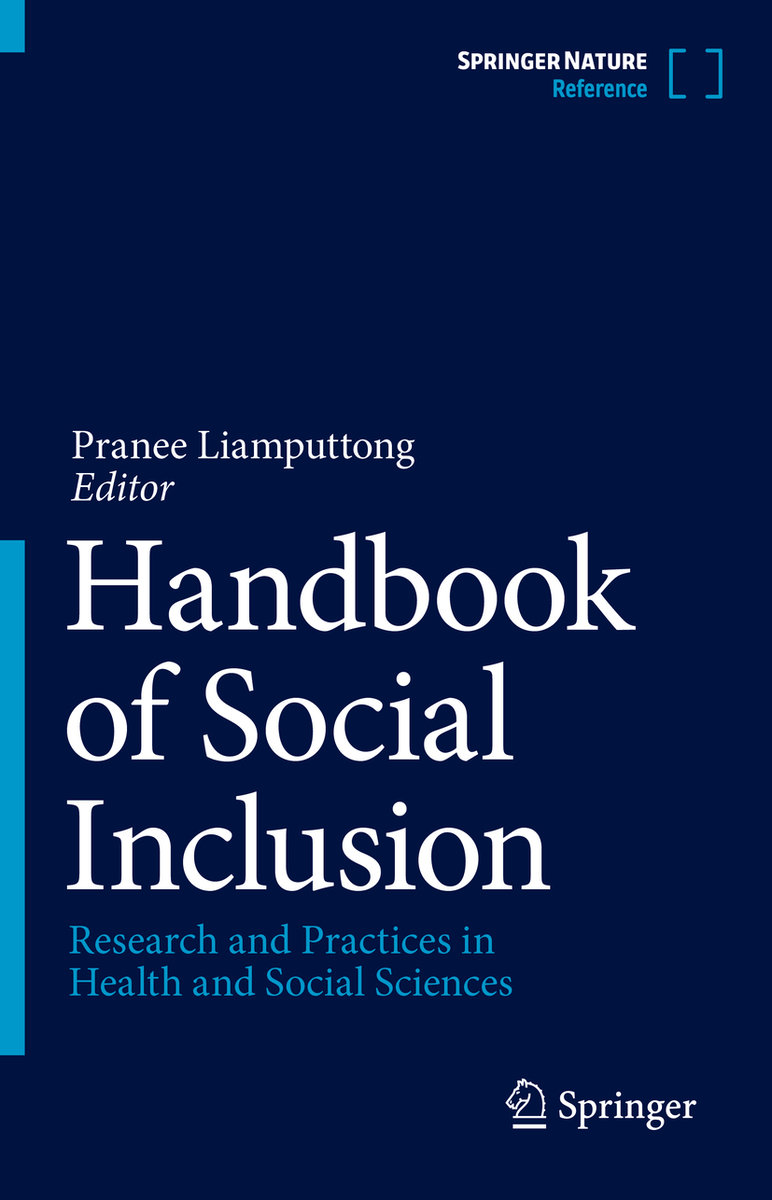Pranee Liamputtong is currently a professor in behavior sciences at the College of Health Sciences, VinUniversity, Vietnam. She is also an adjunct professor at the Translation Health Research Institute (THRI) at Western Sydney University and at the School of Public Health, La Trobe University, in Australia. Previously, she held the position of Professor of Public Health at the School of Health Sciences, Western Sydney University, and Personal Chair in Public Health at the School of Public Health, La Trobe University, Australia. Pranee has also taught at the School of Sociology and Anthropology and worked as a public health research fellow at the Centre for the Study of Mothers' and Children's Health, La Trobe University. Pranee's particular interests include issues related to socio-cultural influences on childbearing, childrearing, motherhood, infant feeding practices, and reproductive and sexual health. Her current research includes motherhood, HIV/AIDS, breast cancer, sexuality, and sexual violence. Pranee has published several books and a large number of papers in these areas. These include Maternity and Reproductive Health in Asian Societies (with Lenore Manderson, Harwood Academic Press, 1996); Asian Mothers, Western Birth (Ausmed Publications, 1999); Living in a New Country: Understanding Migrants' Health (Ausmed Publications, 1999); Hmong Women and Reproduction (Bergin & Garvey, 2000); Coming of Age in South and Southeast Asia: Youth, Courtship and Sexuality (with Lenore Manderson, Curzon Press, 2002); and Health, Social Change and Communities (with Heather Gardner, Oxford University Press, 2003). Her more recent books include Reproduction, Childbearing and xxi Motherhood: A Cross-Cultural Perspective (Nova Science Publishers, 2007); Childrearing and Infant Care Issues: A Cross-Cultural Perspective (Nova Science Publishers, 2007); The Journey of Becoming a Mother Amongst Thai Women in Northern Thailand (Lexington Books, 2007); Population, Community, & Health Promotion (with Sansnee Jirojwong, Oxford University Press, 2008); Infant Feeding Practices: A CrossCultural Perspective (Springer, New York, 2011); Motherhood and Postnatal Depression: Narratives of Women and Their Partners (with Carolyn Westall, Springer, Dordrecht, The Netherlands, 2011); Health, Illness and Well-Being: Perspectives and Social Determinants (with Rebecca Fanany and Glenda Verrinder, Oxford University Press, 2012); Contemporary SocioCultural and Political Perspectives in Thailand (Springer, 2014); Public Health: Local and Global Perspectives (Cambridge University Press, 2016, second edition in 2019); and Social Determinants of Health (Oxford University Press, 2019). Pranee was a general editor of the book series HIV/ AIDS and Cross-Cultural Research. The series was published by Springer in the Netherlands between 2012 and 2020. Her two books in the series were published by Springer in 2013. These were Stigma, Discrimination and Living with HIV/AIDS and Women, Motherhood and Living with HIV/AIDS. The third one in the series is Children, Young People and Living with HIV/AIDS: A Cross-Cultural Perspective, published in 2016. Pranee has also written and edited a number of research method books. Her first was Qualitative Research Methods: A Health Focus (with Douglas Ezzy, Oxford University Press, 1999); the second edition of the book is titled Qualitative Research Methods (2005); the third edition was published in 2009; the fourth edition was published in 2013; and the fifth edition was published in 2020. Pranee has also published a book on doing qualitative research online: Health Research in Cyberspace: Methodological, Practical and Personal Issues (Nova Science Publishers, 2006). Her other books include Researching the Vulnerable: A Guide to Sensitive Research Methods (SAGE, 2007); Undertaking Sensitive Research: Managing Boundaries, Emotions and Risk (with Virginia xxii About the Editor Dickson-Swift and Erica James, Cambridge University Press, 2008); Knowing Differently: Arts-Based and Collaborative Research Methods (with Jean Rumbold, Nova Science Publishers, 2008); Doing Cross-Cultural Research: Ethical and Methodological Issues (Springer, 2008), Performing Qualitative Cross-Cultural Research (Cambridge University Press, 2010); Research Methods in Health: Foundations for Evidence-Based Practice (Oxford University Press, 2010, 2013, 2017); Focus Group Methodology: Principles and Practice (SAGE, 2011, online version in 2016); and Using Participatory Qualitative Research Methodologies in Health (with Gina Higginbottom, SAGE, 2015). In 2019, her Handbook of Research Methods in Health Social Sciences was published by Springer. She is now working on a number of books including Research Methods in Health, 4th edn (Oxford University Press, due in late 2021), Qualitative Research Methods in the Social Sciences (Edward Elgar, forthcoming), Handbook of Qualitative Cross-Cultural Research: A Social Science Perspective (Edward Elgar, forthcoming), and Handbook of Social Science in Global Public Health (Springer, forthcoming).



